Never Do This If You’re on an Oversold Flight, Expert Warns
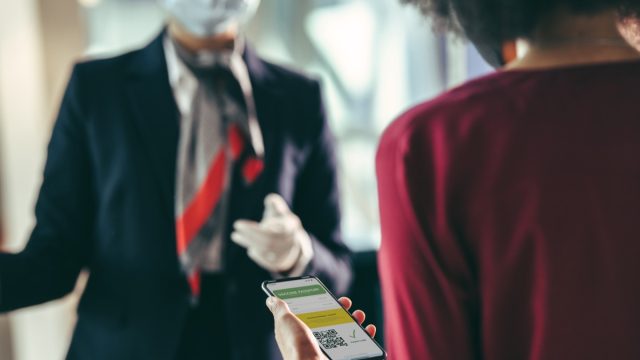
If you purchase a seat on a flight, you should expect to be able to board the aircraft and settle into your designated seat when the time comes, right? Theoretically, yes. But now that demand for travel is hot once again, airlines are overselling flights and bumping passengers. When airlines work to maximize profits by selling more seats than are actually available on scheduled flights, this practice compensates for no-shows and makes sure flights fly full. But in some cases, this means that there are more bodies than seats in the airport ready to fly. And that’s when airlines ask passengers to voluntarily give up their seats in exchange for compensation. So, what should you do if you’re asked to be bumped on an oversold flight?
To find out, we asked for input from Willis Orlando, senior product operations specialist at the insider-intel platform Scott’s Cheap Flights. Read on for his advice on how to handle an oversold flight so you get the best deal possible—and avoid getting shortchanged in the negotiation.
RELATED: Never Do This When Your Flight Is Canceled, Travel Expert Warns.
If you’re on an oversold flight, never accept the first offer the airline throws out.
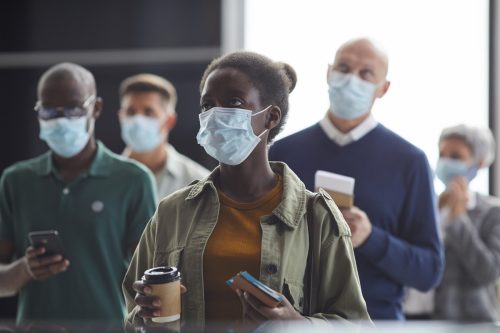
It can certainly be appealing to travelers when an airline announces that volunteers bumped from a flight will be eligible for a travel voucher. But take the first offer and risk being seriously lowballed.
“I’ve always thought of myself as a very savvy traveler, but if I heard I was on an oversold flight and I was feeling flexible and feeling like I could afford [the extra time in transit], I’d be the first person up there to volunteer,” Orlando says of his previous way of thinking. “They’d say they were offering volunteers $300 to get bumped and I’d run up and say, ‘I’ll take it!’ I wanted to get that voucher.”
RELATED: Never Say These 2 Words to a Flight Attendant, Expert Warns.
Instead, negotiate for a better offer.
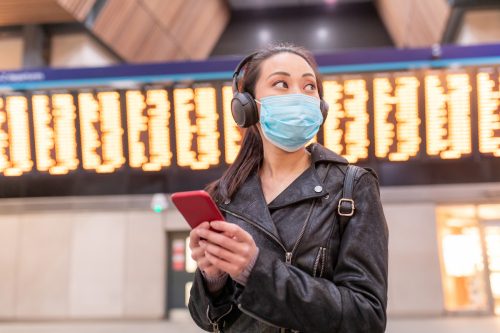
But now, Orlando knows that jumping to accept the first offer can result in getting a lower voucher value than other passengers who wait it out. “Being eager and getting up there early is a good thing, but taking the first offer they give you is a bad thing,” he says.
Instead of accepting the airline’s first offer, he recommends approaching the podium early and saying, “Hey, I’ll be bumped, but I want to have the same compensation as the last person who volunteers,” Orlando suggests. “Airlines tend to increase compensation as the pressure gets higher and they’re trying to get those final people off the flight.”
Note that, per the U.S. Department of Transportation, “There is no limit to the amount of money or vouchers that the airline may offer, and passengers are free to negotiate with the airline.”
Airlines are motivated to work with you.
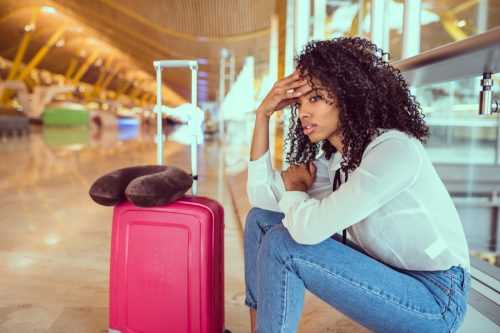
You may worry that this approach could talk you out of getting any kind of voucher at all. But as a passenger, you have more power in this situation than you might think.
“Once you get them to commit to compensating you at a certain level, they’ll almost always follow through on it,” Orlando says. “Because if you choose to get on the flight, they’ll be on the hook for much higher compensation” when they have to bump passengers involuntarily.
RELATED: For more up-to-date information, sign up for our daily newsletter.
Federal law requires airlines to compensate bumped passengers.
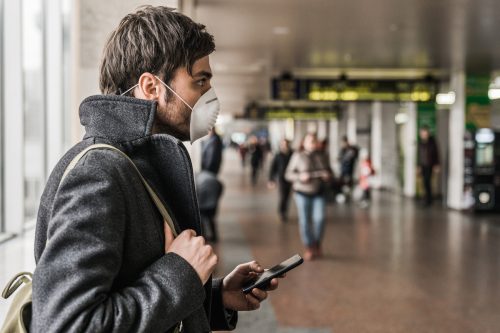
Consider how much the airline has to pay out as an alternative under federal law: twice the price of a one-way fare up to $775 if your new flight is delayed an hour, or four times the one-way fare if the flight is delayed over two hours up to $1,550.
And that’s a serious chunk of change. Because of that, Orlando says, “the last thing they want is to have to bump you involuntarily.”
RELATED: The CDC Just Banned You From Bringing This on Flights.